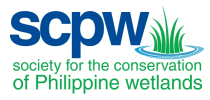
Call for Abstracts
Process for Abstract Submission
- Important Dates
- Types of Presentation
- Abstract Submission Format
- Anonymized Review
- Submission Process
For any inquiries please contact the AWS Secretariat.
IMPORTANT DATES
- Abstract submission: Until 31 July 2024
- Open Side event and exhibition registration: 15 July – 31July 2024
- Abstract review and selection: 1-30 August 2024
- Notification of abstract/side event/exhibition selection: 31 August 2024
- Presenter registration: 1-30 September 2024
- Submission of final version of abstracts: 15 September 2024
- Deadline for oral presentation material submission: 31 October 2024
- Early bird registration for participants: 01 – 31 August 2024
- Regular registration for participants: 01 September – 31 October 2024
TYPES OF PRESENTATION
- Oral presentation: Authors will have opportunities to present their work and research activities in the sessions with 20-minute time slots.
- Poster presentation: Poster sessions will be arranged within a designated area allowing authors to display their work and research activities through posters on panels.
ABSTRACT SUBMISSION FORMAT
- Use Abstract Template
- Abstract Title
- Authors & Corresponding Authors with affiliations and contact information
- 500-600 words, written in English
- 3 key words

Call for Abstract QR Code
ANONYMIZED REVIEW
The evaluation of the abstract is performed by reviewers who do not know the identity of the author or session proposer. All abstracts go through anonymized review for quality, rigorous methods, and clarity. There are no guarantees that abstracts will be accepted. Only a limited number of presentations can be accepted due to the limits of time and venue. Please ensure that you submit your abstract using the Abstract Template.
SUBMISSION PROCESS
Please note that all submissions should be submitted using the Abstract Submission Form. The Call for Abstracts is until 31 July 2024 (Wednesday). The review of abstracts are conducted in 1-30 August 2024 and authors are notified of their accepted abstracts in 31 August 2024. Presenters are invited to register from July to October 2024. Final versions of abstracts are set in September 2024 and the deadline for oral presentation materials is October 2024. Each abstract submission must be unique and may not be presented in multiple presentation types.
Selecting the Appropriate Topic
During the submission process, you will be asked to indicate a topic to which you are submitting the abstract. The International Steering Committee and its agencies reserve the right to transfer an abstract to a more suitable topic. The topics for the symposium are the following:
| No. | Topic | Description | |
| 1 | Wetlands and climate change adaptation and mitigation | Wetland ecosystems as a key solution for climate change mitigation and adaptation that includes Eco-DRR, GHG emissions, carbon sequestration and neutrality, and carbon sinks | |
| 2 | Wetland restoration | Wetland ecosystem and species restoration approach and case studies towards sustainable wetland management | |
| 3 | Wetland biodiversity | Wetland biodiversity that defines its richness and abundance, and discuss important species and habitats including wetland birds | |
| 4 | Conservation and wise use of wetlands | Research and case studies on protecting and conserving wetlands and relatively small wetlands located in either rural or urban areas that support the livelihoods of local communities and biodiversity | |
| 5 | Wetlands and the Sustainable Development Goals (SDGs) | Practices and studies to discuss the role and contribution of wetlands to achieve the Sustainable Development Goals (SDGs) related to water, food security, health, and biodiversity (SDG 2,3,6,14,15) | |
| 6 | Wetland education in the formal education sector (wetland schools) | Case studies facilitating wetland schools and wetland education programs in the formal education sector at the national and regional levels in support of implementing Ramsar Resolution XIV.11 Wetland education in the formal education sector | |
| 7 | Innovations in CEPA approaches | Innovative approaches and studies for CEPA (communication, capacity building, education, participation, and awareness) activities from diverse wetland stakeholders | |
| 8 | Nature-positive economy and wetlands | Best practices and case studies from the business sector that consider direct contribution to wetland conservation by shifting economic policy making in a nature-positive way. Case studies on Environmental, Social, and Governance (ESG) approaches may also be included in this session. | |
| 9 | Regional review of draft resolutions for Ramsar COP15 and wetland policies in Ramsar Contracting Parties | Share information on draft resolutions for Ramsar COP15 that will be submitted from the region and case studies of national wetland policies (Ramsar NFPs are invited) | |
| 10 | Wetlands and sustainable built environment | Case studies and practices on designing and constructing facilities and infrastructure adjacent to wetlands in consideration of Eco-DRR and sustainable development in urban and rural areas | |
| 11 | Wetlands and disaster risk reduction management | Research and case studies on adopting disaster risk reduction management approach in wetland management | |
| 12 | Wetlands and ethno-biological knowledge | Case studies of identifying the socio-cultural use and value of wetland fauna by recognizing the importance of correlation of wetland and people |
Notifications and feedback
All authors will receive an email indicating acceptance or not for the symposium. An announcement will be made on this website and on social media when notification emails have been sent out sometime in late July. Please wait for the announcement in late July and also check your spam or junk folders during this time.
Changes to paper or withdrawal
The Book of Abstracts will reflect the information in the submitted abstracts. You may make minor modifications upon consultation with the International Steering Committee or their agencies. Presentations at the symposium must align with the submitted and accepted abstracts. You may not substitute different research if the original research is not complete. Please notify the AWS Secretariat if you request to withdraw your abstract submission.
